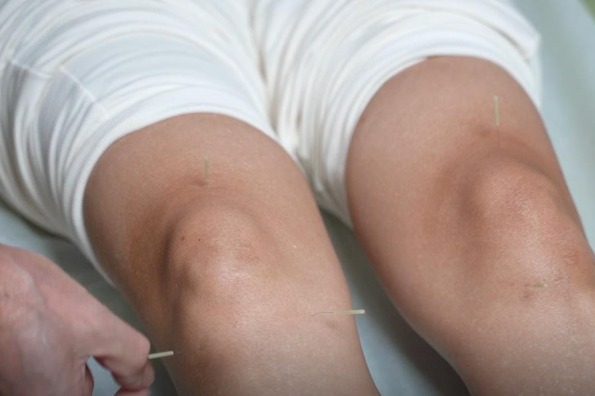Wider clinical use of acupuncture therapy urged

A study led by a prominent Chinese acupuncture expert has identified eight diseases or conditions for which acupuncture therapy shows a moderate or large effect with moderate or high certainty, providing more scientific evidence for wider clinical use of acupuncture worldwide.
Acupuncture was proved in the study to be effective for post-stroke aphasia; neck and shoulder pain; myofascial pain; fibromyalgia-related pain; nonspecific lower back pain; lactation success rate within 24 hours of delivery; vascular dementia symptoms; and allergic rhinitis symptoms, according to the research by a team led by Xu Nenggui, a professor at Guangzhou University of Chinese Medicine and vice-president of the China Association of Acupuncture-Moxibustion.
The research report, titled "Evidence on Acupuncture Therapies Is Underused in Clinical Practice and Health Policy", was published on Friday in the peer-reviewed British Medical Journal.
Acupuncture, a technique of traditional Chinese medicine that originated 2,000 years ago, has seen increasingly wide clinical use worldwide, according to Xu. Research into the underlying biology and clinical research have also grown.
Since 1975, the results of more than 10,000 randomized, controlled trials on acupuncture have been published.
Xu's team reviewed the number and quality of systematic reviews of acupuncture, explored the possible underuse of proven beneficial acupuncture therapies in clinical practice and health policy worldwide, and identified promising and under-researched areas.
For instance, they found that acupuncture is underused in practice for treatment of post-stroke aphasia, a disorder that affects the ability to communicate.
A high-quality, systematic review of eight trials involving 481 patients that compared acupuncture with language rehabilitation, a standard treatment in the West, found a large difference in improvement in the functional communication of post-stroke aphasia patients in favor of acupuncture, the study report said.
However, worldwide, only one Chinese clinical practice guideline has recommended acupuncture therapy for treatment of post-stroke aphasia.
The National Aphasia Association of the United States estimated that 2 million people in the country and 250,000 people in the United Kingdom suffered from post-stroke aphasia in 2016. However, acupuncture is not included in treatment guidelines.
Health insurance policies' lack of coverage is also a factor in the underuse, the study found.
Meanwhile, acupuncture also showed promising effects for such problems as depressive disorders, migraine and opioid use disorders, though funding and research in these areas have increased little in the past decade, according to Xu.
Promising acupuncture therapies that show evident effect yet low certainty represent potentially fruitful future clinical research targets, according to the report.
"It is vital to make use of the large existing body of research evidence to inform clinical and policy decision-making and establish funding and research agendas globally," Xu said.
The team suggested that evidence on acupuncture be digitized and disseminated to facilitate access.




